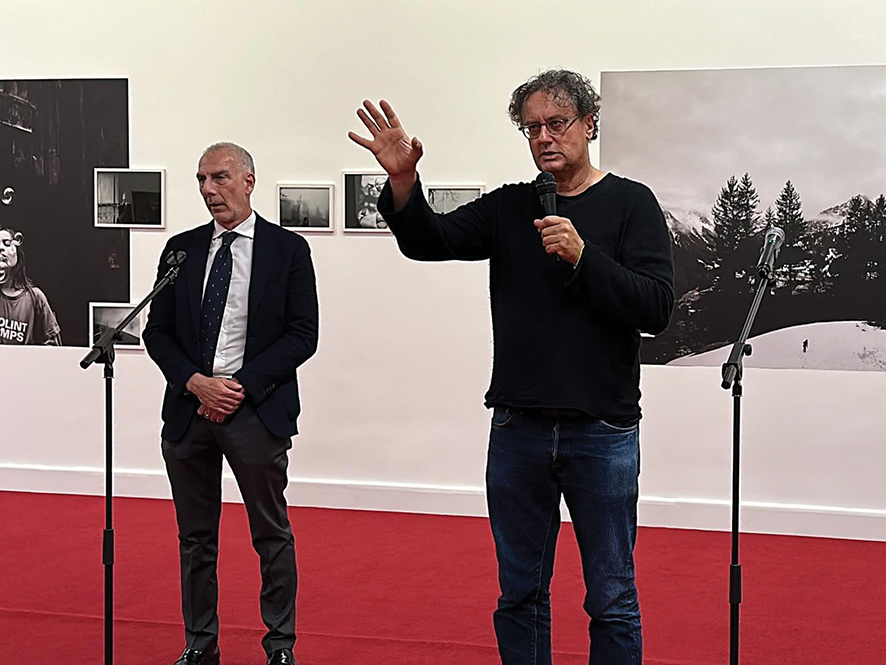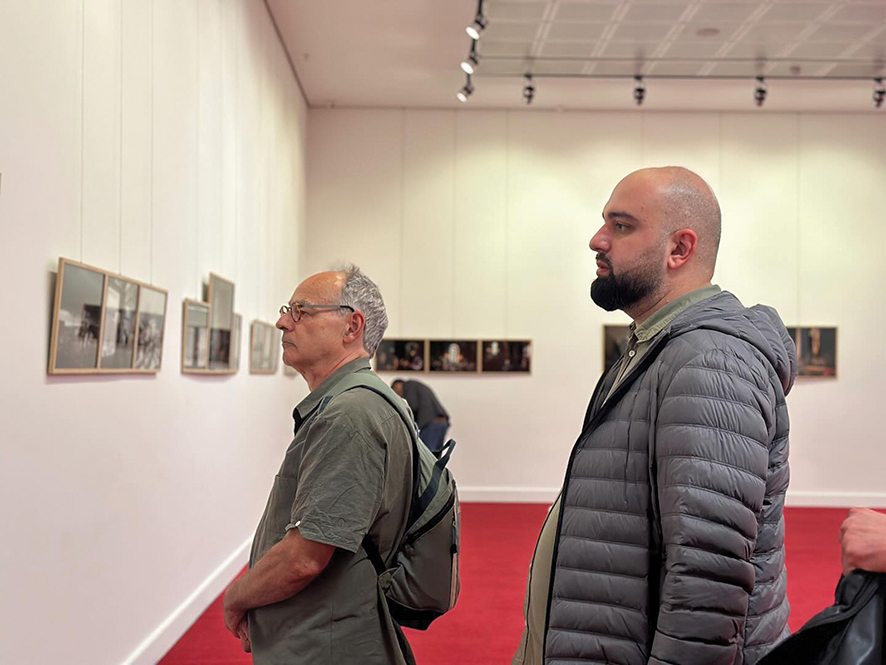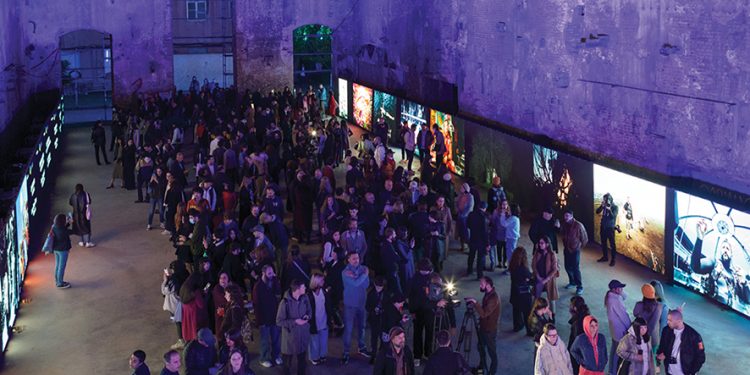Kolga, already a photography institution in Georgia, kicked off its 2024 Tbilisi Photo Festival with an awards ceremony on May 14. The following day, it launched its first exhibition of the week created by works from the world-renowned Italian photographer Paolo Pellegrin.
Kolga has held annual exhibitions in Georgia’s capital since 2002, showcasing photos from both local and foreign photographers. Documenter, photographer and educator Dina Oganova curated the first exhibition of the 2024 week, Paolo Pellegrin Family Album & Sakartvelo, at the Georgian Museum of Fine Arts. Oganova has worked with Kolga before, and tells GEORGIA TODAY how important the institution is for the Caucasus.
“We have another festival in Tbilisi, but Georgia is the only place in the region where you can feel the atmosphere of photography for a whole week,” she says. “May in Tbilisi is very special, because the whole city is full of photography.”
Oganova first started out with Kolga as a participant in the annual photo competition a few years ago. She said she was a competitor, then she made her way to being a curator, then a jury member of this year’s awards. Oganova said she’s been doing photography since she was a young girl.
She and Pellegrin met around 10 years ago when he was working on a photography project (currently on display at the exhibition) in Georgia. The photographer said she loved his work and found his photos inspiring. From the time she met him, she tells us, she dreamed of curating an exhibition that showed “His Georgia, and my Georgia.”

She reached out to Pellegrin, and they decided to launch the exhibition. His displays are divided in two, one focusing on his family, the other on the dedication to religion in Georgia. Pellegrin, a member of Magnum Photos, the largest photo agency in the world, has been a photographer for over 40 years, and said his original interest was to create humanistic photos.
To him, this included photos of people, events and history, and the creation of records, documents or things that stay and form a memory. This led to him covering many conflicts around the world from the mid-90s onward, including the Balkans, Middle East, Africa, Ukraine, and Palestine. His new exhibition with Kolga portrays his family during COVID-19, when no one knew what would happen in the world.
“Photography has the capacity to make the specific coincide with the universal. It can become a metaphor,” said Pellegrin. “For me, it was about my family, but there’s also a sense of something larger with the moments and moods that probably many other families around the world felt.”
Pellegrin said he was shooting in Australia when COVID-19 broke out, and when he came home, he and his wife saw it as an opportunity to get away to the mountains for two months with their girls and document life. This is the first time the photos have been exhibited, and Oganova thought it was important to show this side of Pellegrin, outside of his traditional work.
Pellegrin said that if COVID-19 had never happened, he isn’t sure he would ever have photographed his life and family.
“We are very thankful Paolo could come, spend some days with us, and open this exhibition himself,” Oganova notes.
Kolga has been up and running for 23 years, and holds events that put modern and historical photographs on show. Aside from offering an exhibition, Oganova tells us Kolga also has a big focus on education. During the Tbilisi Photo Festival week, there are various lecturers and workshops that people of all experiences can join, free of charge, to learn more about different aspects of photography.

The goal of Kolga, according to its website, is to connect international photos with old and new photographic positions in Georgia. The festival is open to locals, but several foreigners also tend to participate. There is also an annual competition for people to send in submissions for the award.
This year, the categories consisted of documentary series, reportage, a conceptual photo project, best one-shot/single image, and mobile photo/one-shot. The winners were announced at the Kolga Tbilisi Photo opening night awards ceremony and judged by six jurors from Georgia, Germany, and the United States.
The first exhibition of the week launched on May 15, but there are 15 total, with the last launching on Sunday. All the displays are free to attend and will last approximately two weeks before closing. They will also be held in different locations, found on Kolga’s Facebook page.
The festival is special to many people, Oganova explains, and she foresees it continuing for many years.
“Kolga is 23 years old already, as a festival. We hope it will go on and on and never stop. It’s a very important event in Georgia, especially for photography lovers,” Oganova says.
By Shelbi R. Ankiewicz














